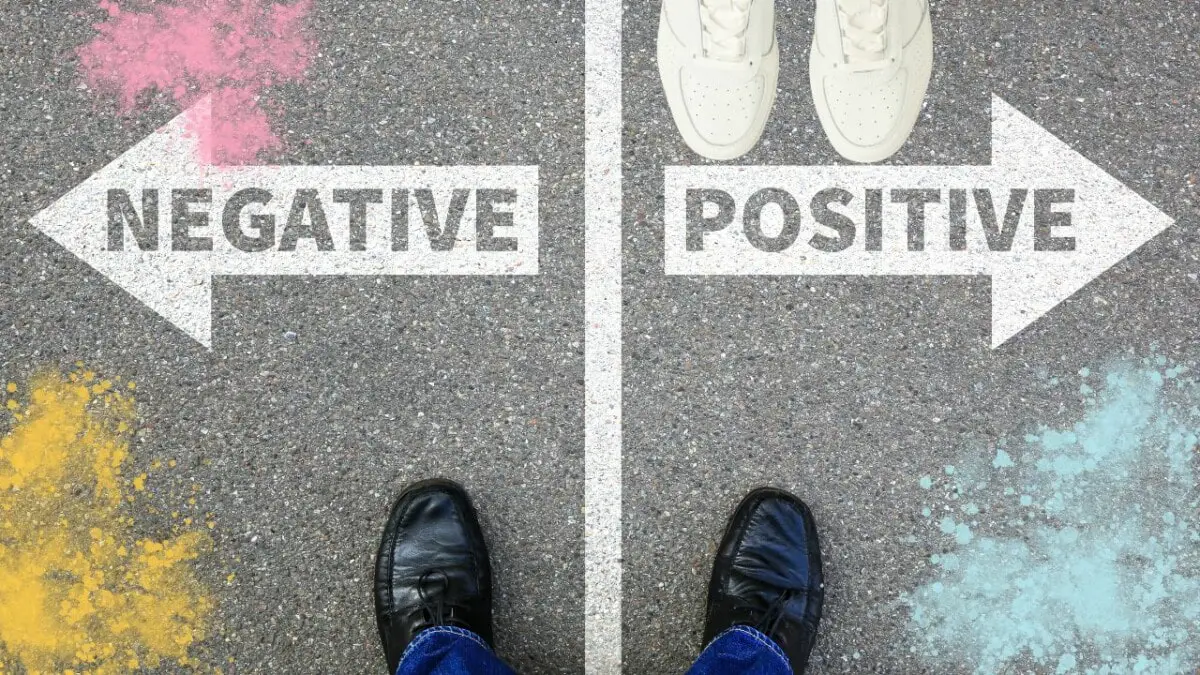Hate is a potentially overwhelming force that dominates our thoughts and actions within the expansive terrain of human emotions. Directed towards an individual, this negativity instigates a toxic cycle of obsession. To break free from the cycle, you need self-reflection and understanding, and take intentional steps for personal growth.
To overcome hatred and obsession towards someone, you first have to recognize and understand the root cause of these feelings. Identifying the source helps you to apply effective methods such as practicing empathy, setting boundaries, mindfulness meditation, focusing on self-improvement, cultivating gratitude, or seeking professional help. Since everyone’s situation is unique, reading this article is recommended to gain insights into your circumstances and then use the suggested methods accordingly.
Steps to Overcome Hatred and Obsession

Acknowledge Your Hatred
Acknowledging your emotions is the initial step towards conquering hatred, obsession, anger, resentment, or frustration is permissible. However, if you suppress these feelings, they might culminate into an unwholesome obsession. Hence, pause for a moment of reflection. Differentiate what stirs within you and probe its origins.
Trapped in a relentless cycle of hatred towards my former colleague, every interaction stoked resentment. I distinguished its detrimental impact not just on my work but also on the overall state of well-being.
Identify The Root Cause
Deeper issues, such as past experiences or personal insecurities, often spawn hatred. When you identify the root cause of your animosity towards a person, a process that may require substantial introspection and self-analysis, it can unlock valuable insights into why this fixation persists.
Delving into my feelings of hatred, I discovered that unresolved issues from my past were rooted in the resentment I harbored toward my colleague. This understanding enabled me to address the core problem.

Practice Empathy
In breaking the chains of hatred, harnessing empathy as a potent tool proves pivotal. Attempt to perceive the situation from an alternate perspective and put yourself in the shoes of the other person. Comprehending their motivations and struggles helps you to humanize them. As a result, letting go of hatred becomes easier.
Practicing empathy, as studies indicate, enhances interpersonal relationships and boosts personal well-being by decreasing stress levels and fostering emotional intelligence.
Set Boundaries
Setting healthy boundaries is crucial for halting the obsessive thoughts about someone you hate. Limit your interactions with this person in both online and offline environments. Doing so not only averts additional conflicts but also provides indispensable space for healing.
I established clear boundaries with my colleagues, creating a buffer zone that reduced the intensity of our interactions. This step proved pivotal in disrupting the cycle of hatred.
This same approach can also apply to friends or a lover you’ve grown to hate due to personal issues that have developed over time as the relationship deteriorates.
Focus on Self-Improvement
Direct your energy away from hatred and towards personal growth. Identify the areas in your life that require improvement. Subsequently, concentrate your efforts on sculpting a superior version of yourself, and your hatred will slowly fade.
Engaging in self-improvement activities: psychological studies suggest this endeavor positively impacts the mental health and overall life satisfaction of a person.
Seek Professional Help
If your hatred and obsession overwhelm you with their intensity, seeking professional help becomes important. Therapists offer not only guidance and support but also coping mechanisms specifically tailored to address your unique situation.
Proven effective, therapy manages and overcomes intense negative emotions. It provides a safe space for individuals, an arena where they can courageously explore their feelings. They can reflect on themselves and gradually heal from past experiences.
Practice Mindfulness Meditation
Engaging in mindfulness meditation can effectively disrupt the relentless cycle of obsessive thoughts. When you actively remain present and focus on the current moment, it allows detachment from negativity tethered to your feelings towards that disliked individual.
Mindfulness meditation is a valuable tool for overcoming hatred, mindfulness practices demonstrate their efficacy in reducing stress, enhancing emotional regulation, and improving overall well-being. These are just a few of the many benefits of mindfulness meditation, placing it in a league of its own with numerous advantages.
Cultivate Gratitude
Transformative shifts occur when you redirect your focus from despising aspects of a person to cultivating gratitude for elements in your own life. Fostering this sense of appreciation not only nurtures a positive mindset but also weakens the grip that hatred can have over us.
Appreciating the positive aspects of my life, I noticed a loosening grip of hatred. An attitude of gratitude empowered me to shatter the shackles negativity had placed on me. Gratitude is a potent tool that can also keep you humble and grounded in life.
What Not to Do When Overcoming Hate and Obsession
We must actively pursue liberation from the clutches of hatred and obsession. To achieve this, it’s vital to be mindful of our behaviors that might inadvertently amplify negativity or hinder personal growth. Let’s recognize and try to avoid these possible pitfalls.

Isolating Yourself
While isolation might appear an appealing remedy, the act of withdrawing from your friends, family, and support networks could escalate feelings of loneliness. It may also amplify negative emotions and increase hatred. So, instead of opting for isolation, actively seek positive connections for emotional support and an expansive perspective.
Seeking Revenge
The powerful emotion of revenge rarely yields the satisfaction you desire. It often incites more harm than good. Only by avoiding vengeful actions can you break free from and prevent the perpetuation of the cycle of hatred. Revenge is a course filled with serious consequences.
Directing your energy towards personal growth and self-improvement, are the constructive ways you should focus on instead. The more hate and revenge you seek, the deeper the hole you will dig yourself.
Once, I entertained the idea of seeking revenge on my detested colleague. However, I soon recognized that such an action would merely intensify our negativity.
In contrast, opting for a path toward personal improvement proved significantly more rewarding. It was a choice laden with fulfillment and growth. Pursuing revenge reflects an immature mindset, one that you should outgrow.

Rumination and Obsessive Thoughts
Endlessly cycling into obsession may result from constant dwelling on negative thoughts about the person you hate. Instead of fixating on grievances, redirect your focus towards the positive aspects of life with active intent. Breaking this pattern of rumination is possible through mindfulness practices and engagement in stimulating activities.
Persistent rumination, as studies have shown, can escalate stress levels and induce mental health issues. Thus, breaking the cycle of obsessive thoughts becomes imperative for emotional well-being. If you no longer have to encounter the person causing you pain and hatred, focus on the relief that it is over and the opportunity to move forward.
Denying Your Emotions
Suppressing or denying your feelings of hatred potentially inflicts harm. Acknowledging and comprehending these emotions serve as crucial steps toward the effective resolution of such feelings.
Understanding is paramount before any progress can be made. If you choose to disregard your sentiments, unresolved issues may inevitably reemerge in the future.
Engaging in Gossip or Negative Talk
Not only does sharing your feelings of hatred in a negative or gossipy manner perpetuate the cycle of negativity, but it can also inflict damage on your reputation. Instead, opt to express these emotions constructively and privately, possibly with a trusted friend or therapist.
Moreover, by not passing on the hatred, your friends or family will sympathize with you and potentially adopt the same negative feelings towards that person. This helps perpetuate a larger cycle of hatred and negativity.
Idealizing a Quick Fix
To break free from obsession and hatred, you must embark on a gradual process that demands time and effort. There are no quick fixes or shortcuts to be found. Engaging in true personal growth requires introspection, self-reflection, and a dedication to positive change.
Initially, I pursued a swift remedy for my feelings of hatred. However, embracing the journey and dedicating myself to long-term self-improvement ultimately yielded better progress.

Ignoring Professional Help
Should your overwhelming feelings of hatred and obsession start to become unmanageable, seeking professional assistance is not an admission of weakness. Therapists offer valuable insights and coping strategies. They create an environment that supports you as you navigate through complex emotions.
Professional therapy is effective in engaging intense negative emotions and nurturing emotional well-being. Professionals are highly qualified with degrees and experience in the matter. They can assist you in gaining a deeper understanding of the situation beyond what you might know on your own.
Navigating the Waters of Forgiveness
The intricate process of conquering hatred and obsession unveils the powerful, transformative force of forgiveness. This is a perspective that allows liberation from negativity.

The Power of Forgiveness
Research consistently highlights the mental and emotional advantages of forgiveness. Studies suggest that an act of forgiving does not inherently condone another’s actions.
Instead, it serves as a potent catalyst for improving your mental health. This process actively reduces stress and concurrently lowers anxiety, ultimately contributing to an overall sense of well-being.
Contemplating my journey, I recognize the pivotal role forgiveness played. It did not involve absolving the person who provoked my hatred from their actions.
Rather, it entailed freeing myself from the emotional chains that held me bound. Upon accepting and embracing forgiveness, a new sense of peace and liberation enveloped me.
Understanding the Role of Self-Compassion
To conquer hatred, we must necessarily expand the principles of compassion towards both others and ourselves. Self-compassion encompasses recognizing our suffering without passing judgment. It prompts us to respond with kindness. This is an aspect that is frequently overlooked but significantly alters personal growth pursuits.
In the quest for personal growth, acknowledging your suffering without judgment and responding with kindness can be a game-changer. This often-overlooked aspect is essential not only toward others but also an extension of compassion toward yourself.
Studies demonstrate that individuals who actively practice self-compassion exhibit enhanced emotional resilience and possess superior abilities to maneuver through challenging situations. Self-compassion, moreover, functions as a buffer against negative emotions; it cultivates not only a positive perspective on yourself but also towards others.
I broke the cycle of self-blame and criticism by integrating self-compassion into my journey. Treating myself with equivalent kindness to what I aspired to offer others, I unearthed an inner strength that drove me forward.
The Art of Letting Go
Releasing yourself from the clutches of hatred and obsession fundamentally necessitates letting go. This allows you to witness the liberating nature of surrendering control and embracing uncertainty.
Psychological studies emphasize the connection between letting go and mental well-being. Holding onto resentment and hatred can instigate chronic stress. However, releasing these negative emotions promotes a profound sense of freedom, even resilience.
In my journey, I consciously chose to let go. This choice entailed relinquishing control and allowing the natural process of healing to unfold, In this act, I unearthed the beauty inherent in embracing each present moment, a potent catalyst for positive change.

Cultivating Positive Habits for Lasting Change
Not only must you relinquish negativity to break free from obsession, but you also need to actively cultivate positive habits. By introducing this element of practical guidance, we empower our readers and spur them toward taking actionable steps for lasting transformation.
Studies in behavioral psychology underscore the influence of habits on your holistic well-being. Positive habits not only foster a sense of purpose and satisfaction but also bolster long-term emotional resilience.
My journey’s cornerstone involved incorporating positive habits into my daily routine such as mindfulness practices and gratitude fostering. These habits not only stabilized my emotional state but also paved the way for sustained personal growth. They served as vital anchors.
Conclusion
Acknowledging your emotions, understanding the root cause, practicing empathy, setting boundaries, and focusing on self-improvement all form part of overcoming an obsession with someone you hate. This challenging journey can transform into a path of personal growth by incorporating mindfulness and gratitude into your daily life. Seeking professional help when necessary is also crucial for breaking free from a toxic hate cycle.
Bear in mind that the journey to relinquishing hatred is unique for each individual. It is a process that requires patience. Commemorate small victories, and welcome the positive changes unfolding as you loosen your grip on obsession. By doing this, you pave the way for an enriched future, brighter and more fulfilling than ever before. If you enjoy reading this, please subscribe to our blog at the bottom of this page to stay updated.
By AL Tran





